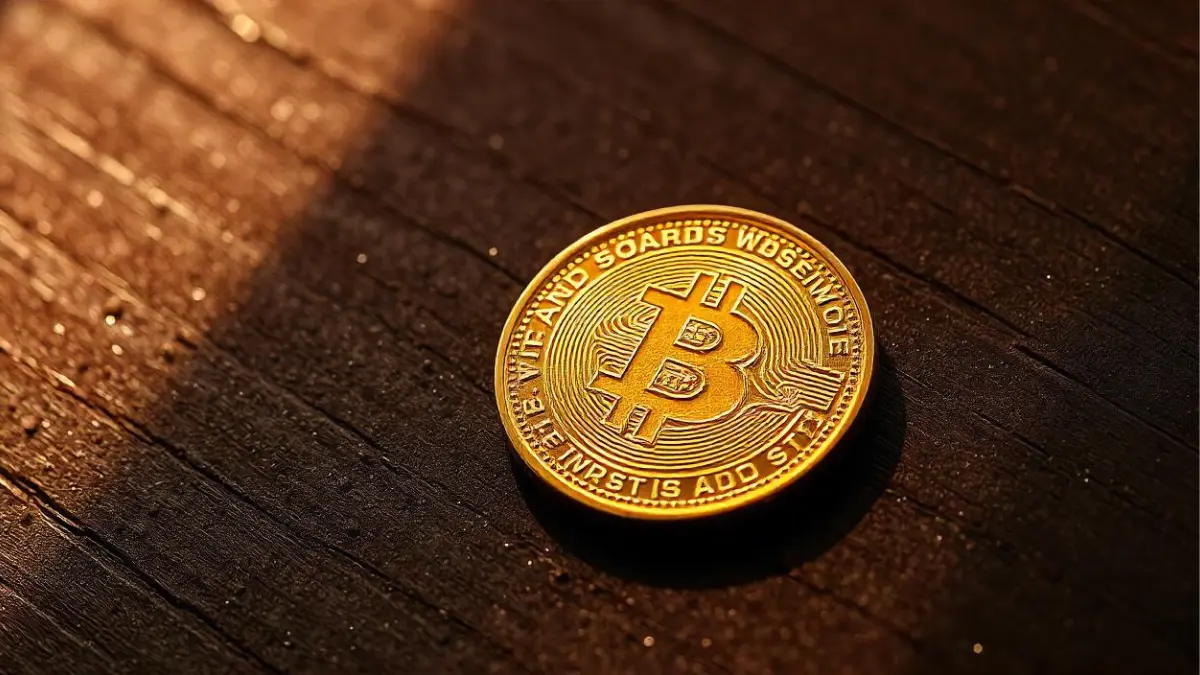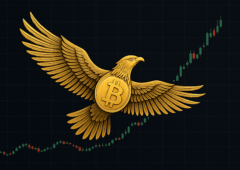Swedish Lawmaker Urges Bitcoin Reserve Strategy Without Taxpayer Spending
13.04.2025 16:30 2 min. read Alexander Stefanov
Swedish lawmaker Rickard Nordin has put forward a provocative question to the country's finance minister: should Sweden consider keeping Bitcoin in its reserve portfolio?
In a formal request to Finance Minister Elisabeth Svantesson, Nordin urged the government to weigh the potential of digital assets in national fiscal strategy, especially as international discourse around Bitcoin continues to grow.
Nordin highlighted how some U.S. states and officials have already floated the concept of treating Bitcoin like a digital version of gold—particularly relevant during times of economic instability and geopolitical tensions. He emphasized Bitcoin’s usefulness not just as an investment, but as a tool for preserving value, especially in countries with repressive regimes.
Instead of advocating for Sweden to buy Bitcoin outright, Nordin proposed a cost-free method: hold on to any BTC seized by authorities, rather than selling it off. He pointed to the United States, where agencies like the DOJ and IRS have accumulated large amounts of cryptocurrency through asset seizures—without spending public money to acquire it.
Sweden’s central bank, Sveriges Riksbank, currently sticks to conventional assets like foreign currencies and gold in its reserve strategy. Nordin believes this conservative stance should be reexamined, given the changing landscape of financial tools.
The inquiry, officially listed as 2024/25:997, requires a formal answer from the finance minister by April 16. So far, the ministry hasn’t provided any public response.
This development reflects a broader trend: while countries like El Salvador have gone all-in on Bitcoin, more developed economies are still figuring out how—if at all—digital assets fit into their financial systems. Nordin’s suggestion could offer Sweden a middle path: integrating Bitcoin into state reserves through asset retention, without committing taxpayer funds.
-
1
U.S. Lawmakers Target El Salvador With Crypto Sanctions Plan
10.07.2025 15:00 2 min. read -
2
Strategy’s $60 Billion Bitcoin Portfolio Faces Mounting Risks, CryptoQuant Warns
10.07.2025 16:36 3 min. read -
3
Esports Giant Moves Into Bitcoin Mining
05.07.2025 13:00 2 min. read -
4
Bitcoin Dominance Nears Key Resistance — Is Altseason Coming Next?
13.07.2025 17:00 2 min. read -
5
Bitcoin Price Prediction: As BTC Hits New All-Time High Is $200K In Sight?
14.07.2025 21:56 3 min. read
Societe Generale Backs Bitcoin and Ethereum ETP Expansion
French banking giant Societe Generale has entered the crypto space more directly, forming a strategic partnership with 21Shares.
Strategy Launches $2 Billion Raise to Buy More Bitcoin
MicroStrategy is doubling down on its Bitcoin strategy with a massive $2 billion fundraising move. Originally planned at $500 million, the company expanded its offering after seeing strong investor demand.
Arkham Intelligence: U.S. Government Holds at Least 198,000 BTC
The U.S. government now holds over 198,000 BTC, valued at approximately $23.5 billion, according to data from Arkham Intelligence.
Tesla Q2 Earnings Surge on Bitcoin Rally and AI Growth
Tesla stunned investors in Q2 2025 with a $1.2 billion profit, nearly tripling its previous quarter’s net income.
-
1
U.S. Lawmakers Target El Salvador With Crypto Sanctions Plan
10.07.2025 15:00 2 min. read -
2
Strategy’s $60 Billion Bitcoin Portfolio Faces Mounting Risks, CryptoQuant Warns
10.07.2025 16:36 3 min. read -
3
Esports Giant Moves Into Bitcoin Mining
05.07.2025 13:00 2 min. read -
4
Bitcoin Dominance Nears Key Resistance — Is Altseason Coming Next?
13.07.2025 17:00 2 min. read -
5
Bitcoin Price Prediction: As BTC Hits New All-Time High Is $200K In Sight?
14.07.2025 21:56 3 min. read


